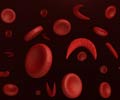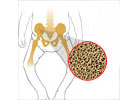Nutrient-enriched plants containing high levels of Vitamin B12 (cobalamin) can reduce vitamin B12 deficiency and overcome dietary limitations. Similarly, vitamin content of some plants can be improved which can make vegetarian and vegan diets more complete.

‘Vitamin B12 (cobalamin) present in the growth medium was absorbed by garden cress seedlings thereby, increased vitamin B12 content in the plant which can be a significant discovery to reduce vitamin B12 deficiency. Nutrient-enriched plants can help to combat dietary limitations and prevent nutrient deficiency, especially among vegetarians.’





Vitamin B12 (known as cobalamin) is an essential dietary component, but vegetarians are more prone to B12 deficiency as plants neither make nor require this nutrient.But now a team, led by Professor Martin Warren at the University's School of Biosciences, has proved that common garden cress can indeed take up cobalamin.
The amount of B12 absorbed by garden cress is dependent on the amount present in the growth medium, and the Kent team was able to confirm B12 uptake by showing that the nutrient ends up in the leaf.
The observation that certain plants are able to absorb B12 is important as such nutrient-enriched plants could help overcome dietary limitations in countries such as India, which have a high proportion of vegetarians and may be significant as a way to address the global challenge of providing a nutrient-complete vegetarian diet, a valuable development as the world becomes increasingly meat-free due to population expansion.
The Kent scientists worked with biology teachers and year 11 and 12 pupils at Sir Roger Manwood's School in Sandwich to investigate the detection and measurement of B12 in garden cress.
Advertisement
The seedlings were found to absorb cobalamin from the growth medium and to store it in their leaves. To confirm this initial observation, the scientists at Kent then made a type of vitamin B12 that emits fluorescent light when activated by a laser. This fluorescent B12 was fed to the plants, and it was found to accumulate within a specialized part of the leaf cell called a vacuole, providing definitive evidence that some plants can absorb and transport cobalamin.
Advertisement
The discovery also has implications for combating some parasitic infections. Not only did the researchers demonstrate that some plants can absorb vitamin B12, but they were also able to use the same technique to follow the movement of fluorescent B12 molecules into worms. These results demonstrate that this is a powerful model to learn about how B12 is absorbed and, as worms must use a different absorption system to mammalian systems, there is the possibility of exploiting this difference to try and treat worm-based parasites such as hookworms.
The findings of the study are published in the journal Cell Chemical Biology.
Source-Eurekalert















